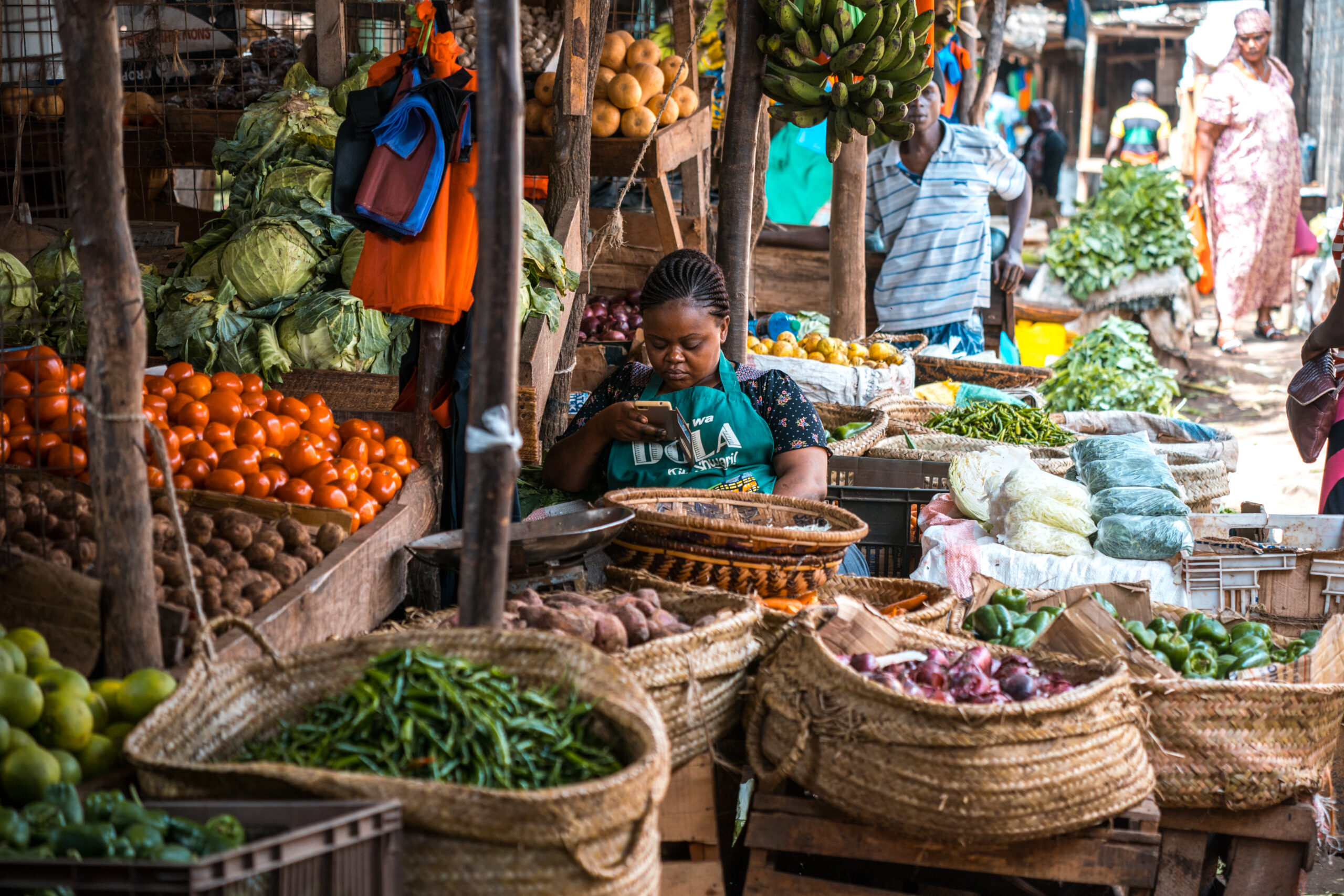Agriculture remains central to improving standards of living in low- and middle-income countries and reducing extreme poverty and hunger. A large body of research, some of which was funded through our Agricultural Technology Adoption Initiative, documents the importance of agricultural productivity for improvements in farmer welfare as well as longer-term development outcomes, a process often referred to as agricultural transformation.
Although these links between agricultural productivity, poverty reduction, and long-run economic development have been widely studied, agricultural productivity remains stagnant in sub-Saharan Africa and parts of South Asia. What is preventing the use of new agricultural technologies that would enable productivity increases? If multiple constraints bind, what products can alleviate these constraints at once? And, how can we leverage digital technology to do this, as well as to, more broadly, improve access options and service delivery?
Through generous support from the Bill & Melinda Gates Foundation, J-PAL and UC Berkeley’s Center for Effective Global Action (CEGA) launched the new Digital Agricultural Innovations and Services Initiative (DAISI) to support innovative, policy-relevant research on the availability, quality, and reach of bundled digital agricultural solutions and services for small-scale agricultural producers.
Launching the Digital Agricultural Innovations and Services Initiative
Chaired by researchers from both J-PAL and CEGA, including Robert Darko Osei (University of Ghana) and Tavneet Suri (MIT), the Digital Agricultural Innovations and Services Initiative (DAISI) will fund research to generate a rigorous evidence base on the impact of digital tools and bundled approaches on improving smallholder farmer outcomes, bolstering farmers’ resilience to climate change, connecting farmers to markets, and expanding commercialization in sub-Saharan Africa and South Asia.
In tackling this agenda, we will prioritize partnership development with commercial providers, private sector technology and fintech firms, telecommunications firms, governments, NGOs, and others to evaluate the impact of their services. DAISI will also focus on generating a body of gender-intentional agricultural research. In addition to social and cultural barriers, we aim to fund studies that address unique constraints for women, such as access to timely information and financing for agricultural investments, financial and digital literacy, control over agricultural income, market linkages and networks, and more. Reducing barriers that limit women’s agency, influence, and decision-making power will be critical to improving economic and welfare outcomes for participating women farmers.
In an effort to further diversify our research network, DAISI will host a Regional Scholars program — similar to the African Scholars programs from DigiFi Africa and JOI — offering dedicated funding and capacity building opportunities for researchers who have completed a PhD in an empirical discipline and currently hold an academic or research position at a university based in a South Asian or African country.
In addition to full-scale randomized evaluations, pilots, and proposal development or travel grants, DAISI will also fund two new proposal categories to respond to the rapid learning needs of private sector providers — rapid A/B product tests and scaling grants to adapt a program for scale or to pilot a scalable, evidence-informed solution. In these and many other ways, DAISI will push our agricultural work into new areas and expand our ability to engage with stakeholders across sub-Saharan Africa and Asia.
Why bundled agricultural innovations and services?
Bundled models and digital platforms that connect farmers to multiple services at once reduce barriers to access both for farmers seeking services, and service providers reaching farmers. When we refer to digital services, we mean platforms that leverage mobile phones, the internet and other digital tools to connect farmers and other actors in a value chain.
Implementers are increasingly using these digital technologies to deliver information, financial services, insurance, trading platforms, local market connections, among others. Often these services are bundled or integrated under the same program, which can be a timely and lower-cost way to reach a large number of farmers. It could also be an effective way to address the multiple constraints farmers face in these environments.
Despite rapid development and growth of implementers in this space, the evidence base on which digitally-enabled services, service targeting mechanisms, and delivery models are effective at improving smallholder farmers’ welfare remains limited. There is even less evidence available on how to reach, benefit, and empower women through such services.
Much as bundled digital agricultural services are starting to appear on the landscape, often provided by the private sector, we still have a lot to learn about bundling. Which bundles are most effective, and for which farmers? How does shifting farming households’ production and marketing decisions (specifically through digital services) affect intra-household decision-making, women’s welfare, and empowerment? And, what are the feasible business models to deliver affordable, scalable solutions to small-scale producers? DAISI will focus on answering these, and many more, critical questions to push our collective understanding of how to best design tools and connect farmers with the services they need in an increasingly digital world.
What’s next?
Through strong partnerships with researchers, the private sector, a variety of service providers, and policymakers, DAISI aims to address outstanding questions relevant to policy and practice in sub-Saharan Africa and South Asia. Stay tuned over the next few months as we share more information on our work and opportunities for funding research on key questions related to bundled and digital agricultural services!
If you’re interested in partnering with us, please contact [email protected].
